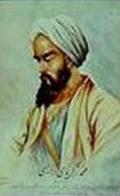Zakariyya al-Razi - Razi University

Muhammad bin Zakariyyāʾ al-Rāzī

Muhammad bin Zakariyyāʾ al-Rāzī
Muhammad bin Zakariyyāʾ al-Rāzī (251-313 Hijri / 865-925 AD) is one of the major Iranian scientists of the third Hijri century. He was such a huge influence that George Sarton, in his Introduction to the History of Sciences, has remarked the second half of the third century as the Era of Muhammad bin Zakariyyāʾ al-Rāzī. Razi was the greatest clinical physician of Islam and the Middle Ages, a physicist, an alchemist (chemist), and an independent philosopher. He apparently mastered Mathematics, Philosophy, Astronomy, and Literature in the city of Rey. He is said to have learned Alchemy at young age, and then switched to medicine due to a problem he had with his eyes – a field he later began to teach and became famous in. Being close to Abu Salih Mansur, the governor of Rey, he became the manager of the newly-built hospital of that city. Later, he held the same position in Baghdad's hospital. He was invited to many governors' courts, thanks to his ever-growing fame. Razi was well-mannered and good-natured, and would treat the patients with kindness and mercy, exempting the weak and the poor from medical charges. His publications are reported, by some, to be up to 198, and up to 237 by others. Nothing is left from his works on Natural Sciences, Mathematics, Astronomy, and Physics of Light. Razi's concerns were not scientific aspects of Medicine only, but was rather a true physician in theory and practice. His notes in which he has meticulously described his patients' healing process are still extant. His most famous work in medicine is "al-Hawi". Among his other works, one can mention "al-Tib al-Mulūki" and "al-Mansuri". Furthermore, he has a few treatises on some diseases, the most important of which is "al-Judari wa al-Hasbah". This treatise received a warm reception from the surprised Europeans and was one of the best old treatises on medicine. He has yet another treatise on bladder and kidney stone which has been published in French in London. Razi has also written a few books on Philosophy, Theology, Spirituality, and religious and philosophical controversies. Razi came down with an eye disease at the end of his life due to excessively studying Alchemy and eventually went completely blind. He passed away in 313 Hijri.
